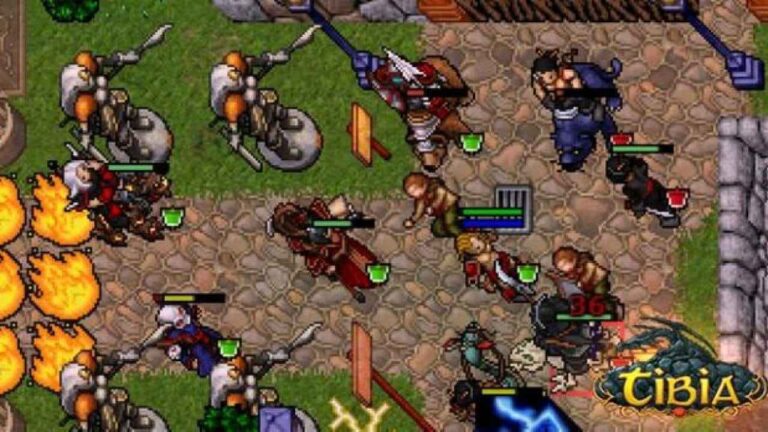Anúncios
Entering the gaming world can feel like stepping into an entirely new universe. One of the first and most important decisions you’ll face is whether to invest in a gaming PC or a console. Both options have passionate communities, strong advantages, and a few drawbacks.
As a beginner, the choice might seem overwhelming. You’ll hear arguments from both sides, ranging from performance to convenience, and the truth is—there’s no universal answer. It all depends on your gaming style, budget, and long-term goals.
Anúncios
In this guide, we’ll break down every factor you need to consider, side by side, so you can make an informed decision that suits your lifestyle and ambitions as a gamer. Let’s get started.
Understanding the Basics
Before diving into the details, it’s important to define what we mean by PC gaming and console gaming. A gaming PC is a personal computer designed or upgraded to run video games at high performance levels. It can be custom-built or purchased pre-assembled. A console, on the other hand, is a dedicated gaming device such as the PlayStation 5, Xbox Series X/S, or Nintendo Switch, designed to play games with minimal setup.
While PCs are versatile machines that can handle a range of tasks beyond gaming—like work, streaming, or content creation—consoles focus almost entirely on delivering a streamlined gaming experience. This distinction sets the stage for all the comparisons that follow.
Performance and Graphics
When it comes to performance, PCs generally take the crown. With the right hardware, a gaming PC can run games at ultra-high frame rates, support 4K resolution and beyond, and utilize technologies like ray tracing for lifelike lighting effects. The ability to upgrade components means your PC can evolve with gaming technology over the years.
Consoles, however, are designed to provide consistent performance out of the box. While they might not match the absolute highest-end PCs, modern consoles like the PS5 and Xbox Series X deliver impressive visuals and smooth gameplay at a fraction of the cost of a high-spec PC. For many beginners, that balance between quality and affordability is appealing.
Game Library
Your choice of platform will also determine the games you can play. PC gaming offers an enormous library that spans decades, from indie titles to AAA blockbusters. Services like Steam, Epic Games Store, and Xbox Game Pass for PC make it easy to find a wide range of options, often with heavy discounts during seasonal sales.
Consoles shine when it comes to exclusive titles—franchises you simply can’t get on PC (at least not right away). For example, The Last of Us and God of War are tied to PlayStation, while Halo and Forza Horizon are Xbox staples. Nintendo Switch exclusives like The Legend of Zelda and Super Mario remain highly sought-after and are best enjoyed on their native hardware.
Cost Considerations
Budget is often the deciding factor for beginners. A console generally has a lower upfront cost—you buy the device, maybe an extra controller, and you’re set. With PCs, the initial investment can be significantly higher, especially if you aim for high-end components.
However, PCs can save money in the long run thanks to cheaper games, free online play (unlike consoles that require subscriptions such as PlayStation Plus or Xbox Live Gold), and the ability to upgrade instead of replacing the whole system. That said, PC parts can still be pricey, so careful planning is essential.
Ease of Use and Setup
One major advantage of consoles is simplicity. You plug it into your TV, connect to the internet, and start playing. Updates are straightforward, and you don’t have to worry about compatibility issues.
PCs, on the other hand, can require more technical know-how—installing drivers, adjusting graphics settings, and troubleshooting occasional glitches. While these tasks can be a learning curve for beginners, they also offer valuable skills for those interested in tech.
Customization and Upgrades
PCs are unmatched in customization. From RGB lighting to advanced cooling systems, you can tailor your machine’s performance and aesthetics to your liking. Upgrades—like swapping out the graphics card or adding more RAM—allow your system to grow over time.
Consoles are far more limited in this regard. Apart from adding storage or accessories, there’s little you can change about the internal hardware. This means that when a new generation arrives, upgrading usually means buying a brand-new console.
Multiplayer and Online Services
Multiplayer gaming is a key factor for many players. PC gamers have access to a wide range of online platforms, many of which are free. Services like Discord make voice chat and community building easy.
Consoles typically require a paid subscription for online play, but these often come with free monthly games and discounts. Xbox Game Pass Ultimate, for instance, combines online access with a vast game library.
Portability and Space Requirements
If space is limited or you like to game on the go, portability matters. Consoles are relatively compact and easy to move, and the Nintendo Switch doubles as a portable gaming device.
PCs range from massive desktop setups to compact gaming laptops, but generally require more space, especially for full desktop rigs with monitors, keyboards, and accessories.
Resale Value and Longevity
Consoles often have better resale value because demand for them remains high until the next generation launches. PCs depreciate faster due to the rapid pace of hardware innovation, though high-end parts can retain value for enthusiasts.
In terms of longevity, a well-maintained PC can last many years with incremental upgrades, while consoles typically have a fixed lifespan tied to their generation cycle.
Decision-Making Framework
When deciding, ask yourself:
- What’s my budget for both the initial purchase and ongoing costs?
- Do I care more about performance or ease of use?
- Are exclusive games important to me?
- How much space do I have for my gaming setup?
- Am I interested in customizing or upgrading my system over time?
Answering these will help narrow down the right choice for your gaming journey.
Conclusion
Choosing between a PC and a console isn’t about which is objectively better—it’s about what’s better for you. A gaming PC offers unparalleled customization, performance, and versatility, while consoles deliver simplicity, affordability, and access to exclusive games. By weighing your priorities and understanding the strengths and weaknesses of each, you can confidently make a choice that will keep you entertained for years to come.
FAQs
1. Is a gaming PC harder to maintain than a console?
Yes, PCs require more upkeep, including software updates, driver installations, and occasional hardware cleaning or upgrades.
2. Which is better for casual gaming?
Consoles often suit casual gamers better due to ease of setup and straightforward use.
3. Can I use a gaming PC for work and school?
Absolutely. PCs are versatile and can handle productivity tasks alongside gaming.
4. Are console exclusives worth choosing a console over a PC?
If your favorite franchises are exclusive to a console, it can be a decisive factor.
5. Do gaming PCs become obsolete faster than consoles?
Not necessarily—PCs can be upgraded gradually, extending their lifespan beyond a single console generation.



